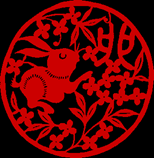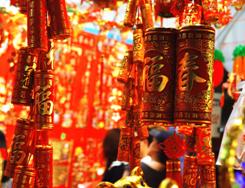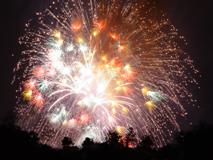News & Updates
Lotus - A trusted name in family travel
Lunar New Year 2011
 Lunar New Year 2011
Lunar New Year 2011
Asian cultures represent more than one-quarter of the world’s
population, observe the lunar calendar. This year the Chinese
year 4709 begins on February 3, 2011 and is the beginning of the Year
of the Rabbit. In the lunar calendar, each month begins on the
darkest day. New Year festivities typically start on the second
new moon following the winter solstice and continue until the 15th,
when the moon is its brightest. A month from the New Year it
is a peak time for businesses in Asia, as people open their wallets
to buy presents, decorations, food and clothing. Transportation
departments, particularly railroads, anticipate the crush of travelers
who take their days off around the New Year to return home from all
over the country for a family reunion.
Background and Legend
 Lunar
New Year Is also commonly called the Spring Festival and has origins so old,
it appears to be untraceable. It is commonly agreed thought that the word “Nian” (which
in modern China simply “year”), was
also the same word originally used for a beast that preyed on people the
night before the New Year began. One certain legend recounts that the
beast, Nian had a large mouth and could swallow many people in one big bite
and regularly attempted to do so. One day an old man came to the village and
offered to resolve the ongoing problem with Nian, the beast. The villagers
were thrilled and he supposedly said to Nian, “Why do you swallow these
people who are not even worthy opponents?” And, Nian turned his
attention to more fierce creatures such as lions and tigers that had been
also preying on the villagers’ domesticated animals. Following the old
man’s intervention
and Nian’s departure the people enjoyed a wonderfully peaceful time in
their lives. They were faithful to follow the old man’s advice to
put up red paper decorations on their windows and doors at each year’s
end to scare away the Nian beast if he should try to return. According to
the old man, the beast feared the color red because he thought it was fire,
which would burn him.
Lunar
New Year Is also commonly called the Spring Festival and has origins so old,
it appears to be untraceable. It is commonly agreed thought that the word “Nian” (which
in modern China simply “year”), was
also the same word originally used for a beast that preyed on people the
night before the New Year began. One certain legend recounts that the
beast, Nian had a large mouth and could swallow many people in one big bite
and regularly attempted to do so. One day an old man came to the village and
offered to resolve the ongoing problem with Nian, the beast. The villagers
were thrilled and he supposedly said to Nian, “Why do you swallow these
people who are not even worthy opponents?” And, Nian turned his
attention to more fierce creatures such as lions and tigers that had been
also preying on the villagers’ domesticated animals. Following the old
man’s intervention
and Nian’s departure the people enjoyed a wonderfully peaceful time in
their lives. They were faithful to follow the old man’s advice to
put up red paper decorations on their windows and doors at each year’s
end to scare away the Nian beast if he should try to return. According to
the old man, the beast feared the color red because he thought it was fire,
which would burn him.
Many of the traditions originating from this legend are retained,
though few modern Asian families recount the origins of why red decorations
play such a central role in the holiday or why loud firecrackers are
required. It is based on the legend that to keep the beast Nian
away, loud firecrackers are required at midnight on the eve of the
New Year.
General Customs
 Days before the New Year arrives, each family is busy conducting
a thorough cleaning of the home in the tradition of symbolically
sweeping away any ill-fortune of the past year and to make way for
the incoming prosperity and fortune. The evening prior to the
New Year is carefully observed with a supper
Days before the New Year arrives, each family is busy conducting
a thorough cleaning of the home in the tradition of symbolically
sweeping away any ill-fortune of the past year and to make way for
the incoming prosperity and fortune. The evening prior to the
New Year is carefully observed with a supper  feast for many family
members joining together. One most popular tradition is to have “JiaoZi” boiled
in hot water. In Mandarin, “JiaoZi” has a literal
meaning of“sleep together and have sons”. Other
foods eaten sound like words for luck or good fortune. In China,
kumquats are popular, since the color and sound resembles “gold”. In
Vietnam, the New Year is known at “Tet” and the celebration
foods vary, but soups and stews are quite common. After dinner in
modern times the family will sit up and wait for the firecracker
events at midnight, meanwhile playing games or watching TV programs
aired specially programmed with celebrations to mark the occasion. At
midnight, the whole sky is typically lit up by fireworks and firecrackers
to mark the moment and tradition has it that the lights are to remain
on for the whole night.
feast for many family
members joining together. One most popular tradition is to have “JiaoZi” boiled
in hot water. In Mandarin, “JiaoZi” has a literal
meaning of“sleep together and have sons”. Other
foods eaten sound like words for luck or good fortune. In China,
kumquats are popular, since the color and sound resembles “gold”. In
Vietnam, the New Year is known at “Tet” and the celebration
foods vary, but soups and stews are quite common. After dinner in
modern times the family will sit up and wait for the firecracker
events at midnight, meanwhile playing games or watching TV programs
aired specially programmed with celebrations to mark the occasion. At
midnight, the whole sky is typically lit up by fireworks and firecrackers
to mark the moment and tradition has it that the lights are to remain
on for the whole night.
Early the next morning, children greet their parents and receive
lucky money placed in a red envelope; this is “hong bao” in
China and “ang pow” in Vietnam. The amount given must
always be an even number. In previous generations during leaner times,
this gift of money was the only gift children would receive all year
and was meant to last the entire year for the children. Today,
sometimes the tradition of giving this gift to family members can
equal a significant portion of a worker’s salary if there are
extended family members to whom to give.
 The end of the New Year celebrations occurs on the fifteenth
day of the year and during the first full moon of the year. People hang glowing
lanterns in temples and carry lanterns to an evening parade under the light
of the full moon. In many areas the highlight of the lantern festival
is the dragon dance. The dragon which is made of silk, paper and bamboo
is typically held up by young men who dance as they guide the best through the
streets. In a new twist, many American Asian communities groups will often
add a parade to the festivities. In Vietnam this day is also a Buddhist sacred
day. After the Lantern festival is complete, the celebratory season is officially
over and life returns to a typical daily routine again.
The end of the New Year celebrations occurs on the fifteenth
day of the year and during the first full moon of the year. People hang glowing
lanterns in temples and carry lanterns to an evening parade under the light
of the full moon. In many areas the highlight of the lantern festival
is the dragon dance. The dragon which is made of silk, paper and bamboo
is typically held up by young men who dance as they guide the best through the
streets. In a new twist, many American Asian communities groups will often
add a parade to the festivities. In Vietnam this day is also a Buddhist sacred
day. After the Lantern festival is complete, the celebratory season is officially
over and life returns to a typical daily routine again.
If you would like to share phrases for well wishes at your home,
here are some:
- Mandarin: “Gong Xi Fa Cai! Xin Nian Kuai Le”
- Cantonese: “Gung Hay Fat Choy! Xin Nien Fy Lohk”
- Translated: “Wishing you (replacing “your”) prosperity! Happy New Year!”
- Vietnamese: “Chuc Mung Nam Mol”
- Translated: “Happy New Year!”
Whatever traditions you observe and however you celebrate the staff at Lotus Travel wishes your family a wonderful year of the Rabbit!!